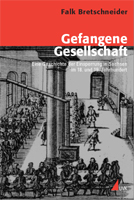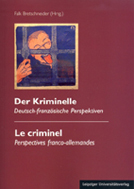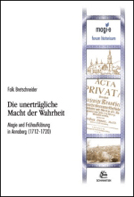CfP: Internment, Incarceration and Detention. Captivation histories in Europe around the First and Second World War (Amsterdam novembre 2011)
On 3 and 4 November 2011 the NIOD, Institute for War, Holocaust and Genocide Studies will organize a workshop in Amsterdam (The Netherlands) on 'Internment, Incarceration and Detention. Captivation histories in Western Europe around the First and Second World War'.
Prisons and prison like institutes are an essential element of Western criminal justice. As an instrument for social control, penal
institutions have become representations of the existing political and social values. When political, social and economic changes occur, they immediately have an effect on the prison system. These changes are more noticeable in times of war and peace while these are times when the prison system occupies an important place in the incarceration of enemies of the (former) regime. Therefore, during the first half of the twentieth century, when the First and Second World War occurred, the detention of both criminals and political prisoners has been highly dynamic.
However, in transitional justice history, 20th century war history and criminal justice history the practice of the prison system in the 20th century is often neglected. Studies on the prison in criminal justice history focus mainly on philosophical theories (Elias, Rusche and Kirchheimer, Foucault, Garland, etc.) and less on archival research. In 20th century war history, the focus is usually on the concentration and extermination camps. Studies concerning transitional justice often only focus on the use of law and do not regard the prison system. This workshop consequently aims to broaden the scope of case studies on captivation histories in Europe around the First and Second World War.
Nikolaus Wachsmann offers a great starting point for this aim with his book Hitler's Prisons. Legal Terror in Nazi Germany (Yale University Press: New Haven/London, 2004). In this groundbreaking study Wachsmann investigates the function of the state prisons during the Third Reich. In doing so, he argues that the Nazi prison cannot be understood without knowledge of the penal system during the Weimar Republic. In other words, studying imprisonment practices during regime changes involves paying attention to lines of continuity and discontinuity.
The NIOD Workshop 'Internment, Incarceration and Detention' seeks to explore the historical practice of incarcerating enemies of the (former) regime, the changes that occur in the existing penal system by doing so, the emergence of new types of correctional institutions and their practical implementation in imprisonment cultures. Different types of prisons should be considered, the most important being: the regular prisons, internment camps and different types of concentration camps (not the extermination camps).
We would like to invite paper proposals that explore diversified
imprisonment and detention practices in implicit or explicit relation to regime change. The topics of interest may include (but are not limited to) the following issues:
Practices of everyday life
- How was life organized in regular prisons in comparison to internment and concentration camps? And how can the relationship with the outside world be described?
- Are there differences in penal institutions for women, men and
juvenile delinquents?
- Were practices in the different penal institutions violent (and in
which specific time and place) and how can this be explained? Was
torture used as means or as goal (punishment)?
- What was the composition of the prison staff and can we trace a
growing influence of 'medical' staff? If so, how did this affect prison
life?
Ideology and regime change
- What are the political and social functions of internment and
detaining during (and after) regime changes?
- Is the 20th century the 'century of internment'?
- Was there a strive for rehabilitation in the penal system? In times of regime change, was there an attempt at political reeducation?
- Did the imprisonment of political opponents have (immediate) effects on prison regimes?
Longterm developments
- Was there a long-term effect on national prison regimes because of the imprisonment of political opponents during the first half of the 20th century?
- Were there differences between the formal status of regular prisons and concentration camps and did this have any effect on the prison system in the long run?
- Did international penal reform movements cause continuities or
discontinuities in the prison system between 1900 and 1950?
The deadline for the submission of proposals is 15 March 2011. Please submit paper proposals (500-word maximum) with presentation title, presenter(s) name(s) and contact information via e-mail to:
a.tijsseling@niod.knaw.nl & h.grevers@niod.knaw.nl
Organizing committee:
Anna Tijsseling (NIOD, Leiden University)
Helen Grevers (NIOD)
Prisons and prison like institutes are an essential element of Western criminal justice. As an instrument for social control, penal
institutions have become representations of the existing political and social values. When political, social and economic changes occur, they immediately have an effect on the prison system. These changes are more noticeable in times of war and peace while these are times when the prison system occupies an important place in the incarceration of enemies of the (former) regime. Therefore, during the first half of the twentieth century, when the First and Second World War occurred, the detention of both criminals and political prisoners has been highly dynamic.
However, in transitional justice history, 20th century war history and criminal justice history the practice of the prison system in the 20th century is often neglected. Studies on the prison in criminal justice history focus mainly on philosophical theories (Elias, Rusche and Kirchheimer, Foucault, Garland, etc.) and less on archival research. In 20th century war history, the focus is usually on the concentration and extermination camps. Studies concerning transitional justice often only focus on the use of law and do not regard the prison system. This workshop consequently aims to broaden the scope of case studies on captivation histories in Europe around the First and Second World War.
Nikolaus Wachsmann offers a great starting point for this aim with his book Hitler's Prisons. Legal Terror in Nazi Germany (Yale University Press: New Haven/London, 2004). In this groundbreaking study Wachsmann investigates the function of the state prisons during the Third Reich. In doing so, he argues that the Nazi prison cannot be understood without knowledge of the penal system during the Weimar Republic. In other words, studying imprisonment practices during regime changes involves paying attention to lines of continuity and discontinuity.
The NIOD Workshop 'Internment, Incarceration and Detention' seeks to explore the historical practice of incarcerating enemies of the (former) regime, the changes that occur in the existing penal system by doing so, the emergence of new types of correctional institutions and their practical implementation in imprisonment cultures. Different types of prisons should be considered, the most important being: the regular prisons, internment camps and different types of concentration camps (not the extermination camps).
We would like to invite paper proposals that explore diversified
imprisonment and detention practices in implicit or explicit relation to regime change. The topics of interest may include (but are not limited to) the following issues:
Practices of everyday life
- How was life organized in regular prisons in comparison to internment and concentration camps? And how can the relationship with the outside world be described?
- Are there differences in penal institutions for women, men and
juvenile delinquents?
- Were practices in the different penal institutions violent (and in
which specific time and place) and how can this be explained? Was
torture used as means or as goal (punishment)?
- What was the composition of the prison staff and can we trace a
growing influence of 'medical' staff? If so, how did this affect prison
life?
Ideology and regime change
- What are the political and social functions of internment and
detaining during (and after) regime changes?
- Is the 20th century the 'century of internment'?
- Was there a strive for rehabilitation in the penal system? In times of regime change, was there an attempt at political reeducation?
- Did the imprisonment of political opponents have (immediate) effects on prison regimes?
Longterm developments
- Was there a long-term effect on national prison regimes because of the imprisonment of political opponents during the first half of the 20th century?
- Were there differences between the formal status of regular prisons and concentration camps and did this have any effect on the prison system in the long run?
- Did international penal reform movements cause continuities or
discontinuities in the prison system between 1900 and 1950?
The deadline for the submission of proposals is 15 March 2011. Please submit paper proposals (500-word maximum) with presentation title, presenter(s) name(s) and contact information via e-mail to:
a.tijsseling@niod.knaw.nl & h.grevers@niod.knaw.nl
Organizing committee:
Anna Tijsseling (NIOD, Leiden University)
Helen Grevers (NIOD)
falkbret - 3. Jan, 20:17



